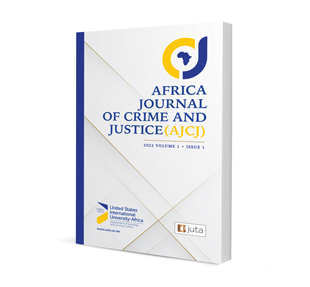
The Efficacy of National and International Accountability Mechanisms in Combating the Al-Shabaab in Somalia
Authors: Kenneth Wyne Mutuma and Benson Waweru Thuo
ISSN: 2958-8162
Affiliations: University of Nairobi, School of Law; Advocate of the High Court of Kenya
Source: Africa Journal of Crime and Justice 2022, p. 126 – 166
https://doi.org/10.47348/AJCJ/2022/a6
Abstract
Decades of power struggles among political rivals have resulted in Somalia being regarded as a ‘failed state’. The absence of a central government has allowed Al-Shabaab to take control of parts of Somalia and commit war crimes as well as crimes against humanity. Despite compelling prima facie evidence of these
crimes, Al-Shabaab has not been held sufficiently accountable, leaving many victims without redress. This is due to the shortcomings of existing national and international accountability mechanisms. Somalia’s judicial branch faces significant capacity challenges that prevent it from adequately investigating and prosecuting war crimes. Countermeasures by religious fundamentalists and excessive reliance on informal dispute-resolution methods further frustrate the justice system’s efforts. Peacekeeping missions by international bodies such as the United Nations Security Council (UNSC) have also been ineffective. In addition, there are growing fears that the group’s reach will grow due to an increase in the revenue that it is able to generate. This article examines the shortcomings of the aforementioned accountability framework and offers solutions to address the gaps to ensure justice for the victims of Al-Shabaab.